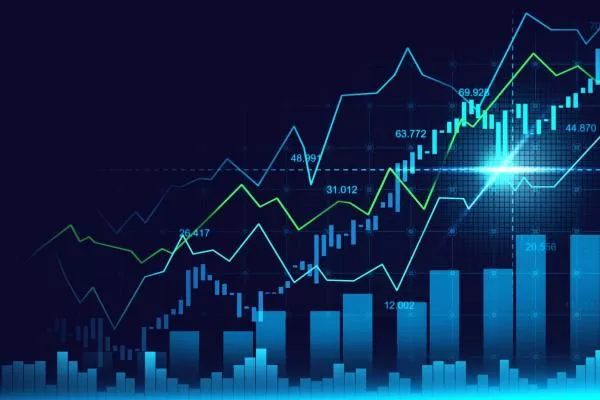Navigating the Global Financial Landscape: Unraveling the Difference Between the Foreign Exchange Market and Foreign Investment
In an increasingly interconnected world, global financial markets play a pivotal role in shaping economies. Two key players in this realm are the foreign exchange market (forex) and foreign investment. While they share the common thread of international transactions, understanding the distinction between the two is crucial for anyone looking to navigate the complex web of global finance. In this article, we delve into the differences between the forex market and foreign investment, shedding light on their unique characteristics and shedding light on their impact on economies worldwide.
I. The Foreign Exchange Market:
Exploring the World’s Largest Financial Market (approx. 300 words) The Foreign Exchange Market (forex) represents the global marketplace for trading national currencies. It serves as the primary avenue for individuals, corporations, and governments to exchange one currency for another. With a daily trading volume exceeding trillions of dollars, the forex market operates 24 hours a day, five days a week, across different time zones.
-
Understanding Currency Exchange Rates
Currency exchange rates form the cornerstone of the forex market. These rates determine the value of one currency relative to another, and they fluctuate in response to various economic and political factors. Traders in the forex market aim to profit from these fluctuations by buying and selling currencies.
-
Market Participants
The forex market attracts a diverse range of participants, including banks, hedge funds, multinational corporations, central banks, and individual traders. The vast liquidity and high trading volumes make it an attractive space for speculators seeking short-term gains and for businesses engaging in international trade.
-
Market Dynamics
The forex market operates as an over-the-counter (OTC) market, meaning that trading occurs directly between participants without a centralized exchange. Currency pairs are traded electronically through various platforms, with the most actively traded pairs involving major currencies like the U.S. dollar (USD), Euro (EUR), Japanese yen (JPY), British pound (GBP), and Swiss franc (CHF). Market sentiment, economic indicators, and geopolitical events all influence price movements in the forex market.
II. Foreign Investment: Nurturing Economic Growth and Global Expansion
Foreign investment involves the allocation of capital from one country to another with the purpose of establishing or expanding business operations. It plays a vital role in fostering economic growth, stimulating job creation, and facilitating technological transfer. Unlike the forex market, foreign investment entails a long-term commitment and typically involves various asset classes.
-
Types of Foreign Investment
Foreign investment can take various forms, including foreign direct investment (FDI) and portfolio investment. FDI refers to the acquisition of physical assets or ownership stakes in foreign companies, while portfolio investment involves buying securities such as stocks and bonds issued by foreign entities.
-
Motivations for Foreign Investment
Foreign investment can be driven by several factors, including market expansion, access to resources, labor cost advantages, technological expertise, and strategic partnerships. Governments often offer incentives to attract foreign investment, such as tax breaks, subsidies, and streamlined regulatory procedures.
-
Impact on Host and Home Countries
Foreign investment has both positive and negative effects on host and home countries. Host countries benefit from job creation, technology transfer, and infrastructure development. However, there can be concerns regarding the repatriation of profits, exploitation of local resources, and potential economic dependency. For home countries, foreign investment can lead to increased exports, profit repatriation, and diversification of investment portfolios. However, it may also lead to job losses and the outflow of capital.
III. Conclusion: Embracing Opportunities in the Global Financial Landscape
In a globalized world, understanding the distinctions between the foreign exchange market and foreign investment is crucial for individuals, businesses, and governments alike. The foreign exchange market serves as a platform for currency exchange and speculation, with its dynamics influenced by a multitude of factors. On the other hand, foreign investment involves the allocation of capital across borders to establish or expand business operations, contributing to economic growth and global expansion.
By recognizing the unique characteristics of each, individuals and businesses can harness the potential of these global financial arenas. For those interested in currency trading, the forex market provides ample opportunities for profit through the buying and selling of currencies. Traders must stay informed about economic indicators, political developments, and market sentiment to make informed decisions and manage risk effectively.
Meanwhile, foreign investment offers a pathway for businesses to access new markets, resources, and technologies. It requires a long-term commitment and careful consideration of various factors, such as legal frameworks, political stability, and cultural nuances in the host country. Governments seeking to attract foreign investment must create an enabling environment through favorable policies, infrastructure development, and institutional support.
As the global financial landscape continues to evolve, individuals and businesses should stay informed about the latest trends and regulations governing these markets. Technological advancements have made it easier for individuals to participate in the forex market, but it is essential to approach trading with caution and an understanding of the inherent risks involved. Likewise, potential investors should conduct thorough due diligence and seek expert advice before making foreign investment decisions.
In conclusion, the foreign exchange market and foreign investment represent distinct realms within the global financial landscape. The forex market facilitates currency exchange and speculation, while foreign investment enables businesses to expand their reach and contribute to economic growth. By understanding the differences and opportunities presented by these two domains, individuals, businesses, and governments can make informed decisions and navigate the complexities of the global financial arena more effectively.


